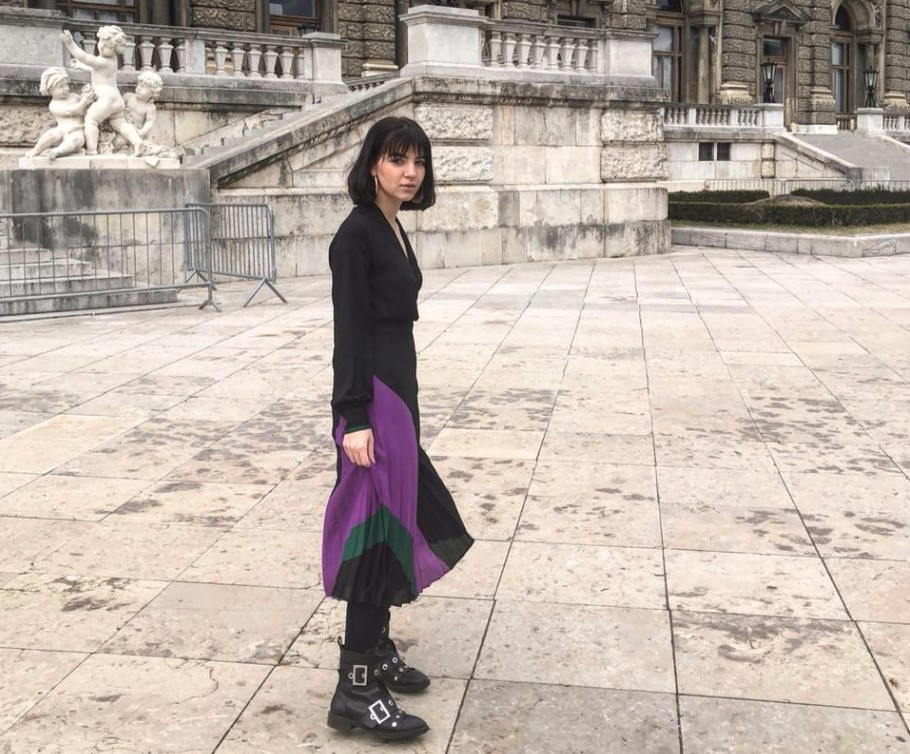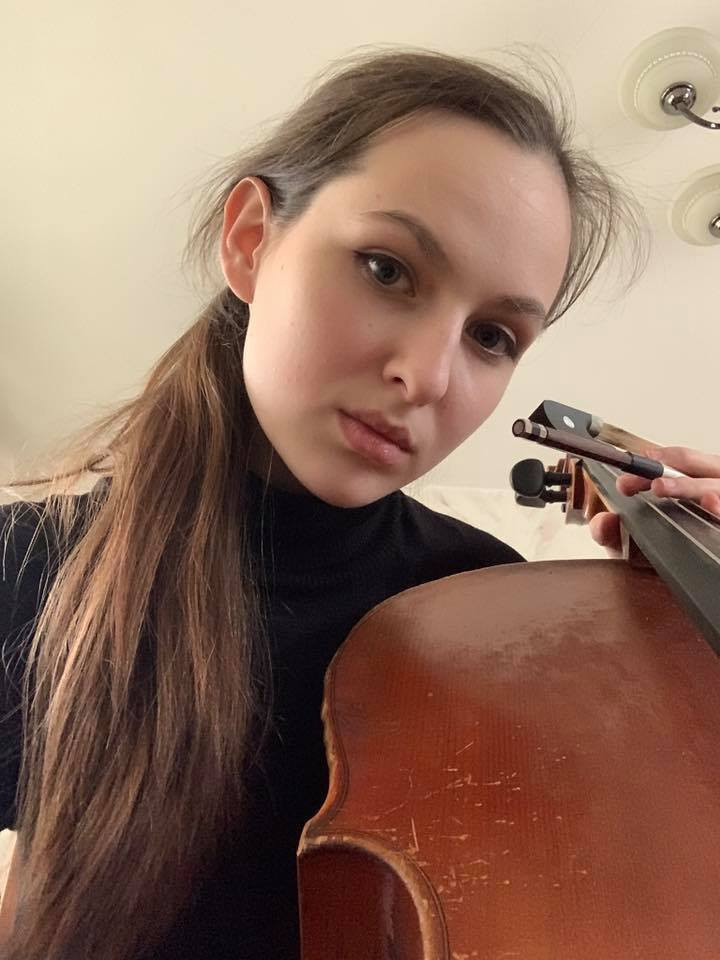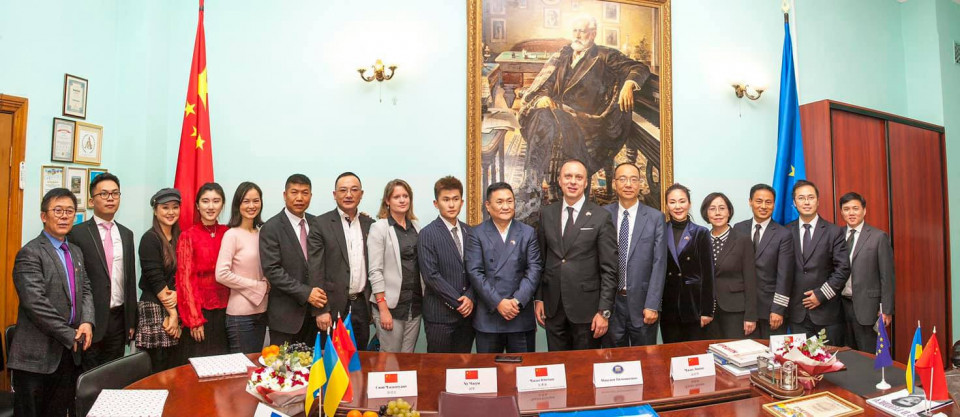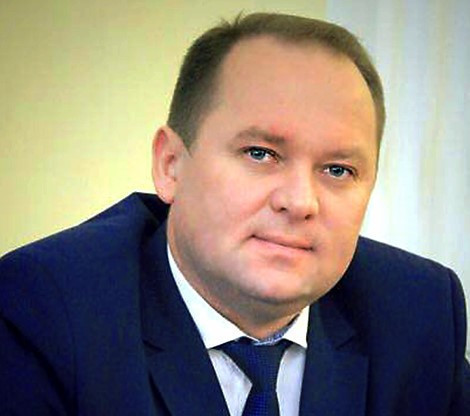
Get rid of Tchaikovsky: students fight with the rectorate to de-Russify the leading conservatory of Ukraine
The capital of Ukraine is being massively de-Russified. More than 400 Kyiv streets to be renamed, with 285,000 people taking part in voting on their new names. However, there will be obstacles in the path to completely de-Russify Kyiv. The administration of the National Academy of Music refuses to rename the institution named after the composer Tchaikovsky
The struggle is still ongoing, with the musicians studying at the institution standing very strongly against the name of the Russian composer. Espreso talked to the students of the academy and tried to find out why they do not want to study at the institution named after the creator of "The Nutcracker" and "Swan Lake".
Pro-Tchaikovsky institutional elite and anti-Tchaikovsky institutional ordinary
"The idea of renaming the academy began even before the full-scale invasion of Russia," says Daryna Masiuk, a second-year student of the piano department. However, the aggression of the rashists, unexpectedly for the students, failed to speed up de-Russification. The Academic Council of the institution decided to keep the name of Petro Tchaikovsky. Moreover, a member of the Academic Council, Yurii Rybchynskyi, even compared the Russian composer to Jesus Christ.
"The Academic Council decided not to change the name of the conservatory, although many students and teachers are in favor of renaming. They just sat down and made this decision for everyone. A wave of negativity washed over the conservatory from those supporting renaming, or at least the absence of any name in the name of the conservatory. Then a petition was written, followed by a letter of appeal to all authorities," says Daryna.

The pianist co-authored a letter of appeal on behalf of the students and graduates of the academy addressed to the president, prime minister, speaker of the parliament, minister of culture and rector of the academy. In the letter, the signatories emphasized the importance of defending the Ukrainian identity against the onslaught of the "Russian peace" and highlighted the poll with more than 75% of students supporting the removal of the composer's name from the name of the institution.
"I was honored to be the first to sign, as I drafted this letter. Teamed up with a lawyer, I was able to draft it correctly from a legal point of view. But it was the initiative of all the students, I just got the chance to draft the letter. We wrote it in half a day, and over the next 24 hours we already collected almost 300 signatures. People kept on sending me their names and expressing support for the next three days after we finished collecting signatures and already sent the letter," says Masiuk.
After the appeal was made public, the rector of the academy Maksym Tymoshenko organized a meeting with the students.
"The meeting did not give anything in particular, confirming our suspicion that the rectorate is not interested in renaming due to some personal reasons. And now we are still trying to solve this issue by all means available to us", say the signatories of the letter.
Academy administration stands for Tchaikovsky background
One of the main public arguments of the music academy administration is the composer's Ukrainian background. This position surprises cellist Emiliia Dmitrieva, a 2nd-year student.
"They are trying to find some distant Ukrainian blood in Tchaikovsky. My relatives have Russian roots. But this doesn't make me Russian and I don't consider myself Russian because of it."
Tchaikovsky called himself a patriot of Russia, "Russian in the fullest sense of the word", in love with its "Great Russian parts".
After all, the students say he is identified exclusively as Russian all over the world
"I am now temporarily abroad, in Freiburg, continuing my studies. Many people (almost every other person) ask where I study. In fact, in other countries, as well as in Ukraine now, the direct association with Tchaikovsky is Russia. Tchaikovsky – is a Russian composer. And when I say that I study at the Tchaikovsky academy, they ask me, "Why? Why is your academy in Ukraine named after a Russian composer?" I'm very uncomfortable about that and generally consider this to be completely absurd. It is high time we changed the name. Tchaikovsky is not Ukrainian and there is no reason to keep his name – not a single one," says Emiliia Dmitrieva.

The main argument of rector Maksym Tymoshenko at the meeting with the students was the opinion that Tchaikovsky is a Ukrainian composer, the students say.
"Instead, the students argued their opinion that Tchaikovsky is not a Ukrainian composer. He may have some roots, but he considered himself Russian, lived in the Russian Empire, worked under the tsar, called Ukraine Little Russia, wrote "Little Russian symphonies", etc. These are well-known facts. But the rector is still inclined to the fact that Tchaikovsky had Ukrainian roots, and we should defend him," says Daryna Masiuk.
In Maksym Tymoshenko's office, it is emphasized that the rector does not have time to talk about renaming, whereas in social networks, the head of the conservatory constantly highlights the Ukrainianness of Petro Tchaikovsky.
"Besides, they are looking for motifs of Ukrainian songs in Tchaikovsky's works, saying he wrote romances based on Ukrainian songs. Maybe it was so, but what is the difference? If we analyze other composers, provided Beethoven wrote on the theme of English or French songs, but we can't call an Englishman or a Frenchman," stresses Emiliia Dmitrieva.
What else is wrong with Tchaikovsky?
Without doubting the genius of the composer, supporters of the renaming believe that the name of the music academy is a legacy of Ukraine's colonial past. The writer Oksana Zabuzhko draws attention to the fact that in 1934 the educational institution was separated from M. Lysenko Music and Drama Institute, and therefore it makes complete sense that it should bear the name of the Ukrainian composer.
Pianist Pavlo Gintov finds it illogical that the main conservatory of the Ukrainian capital bears the name of a Russian, by contrasting it with the leading music institutions worldwide, logically named after the prominent representatives of their countries.
Musicologists also affirm that Tchaikovsky was a singer of the Russian Empire, a monarchist participating in the creation of the ideology, now called "Russian peace." The composer wrote under the order of the authorities, and some works (such as the overture "1812", which uses the melody "God save the king") can be called ideological and even propagandistic.
Undercurrents and the Chinese part
While meeting with the students, the academy's administration tried to convince opponents that the renaming process is complex and long-term. Moreover, it will affect the financial condition of teachers and students.
"There was also a lawyer there who said that because of the renaming, teachers' salaries will be reduced and there will be neither stipends nor bonuses, etc., which is not true (as we found out at the meeting with the Minister of Culture)." says Daryna Masiuk.
The Ministry of Culture assured that salaries and stipends will not be affected. Therefore, the students suspect such a stubborn position of the leadership to be caused by some hidden motives, such as cooperation with the Chinese, for instance. Probably, a part of the establishment was given to Chinese partners as a branch, in exchange for the money received from them.

"We have Chinese students studying at our conservatory according to a contract signed with the Chinese institution also named after Tchaikovsky, and this may be the reason for delaying the time. But the institution's administration denies that the renaming has anything to do with China." says the cellist Dmitrieva.
It’s not the right time
The rectorate states that it is not in Chinese cooperation. Vice-rector for educational, creative work and international relations, Mykhailo Mymryk, in a comment to Espresso, emphasized that while there is a war in the country, it is not the right time for renaming.

"I see two streams and understand everyone, because we are now facing a serious aggressor and all this violent reaction to everything related to Russia. This is an extremely big disaster and trouble for our people. Though, I believe that Tchaikovsky is the genius of music. We cannot just demand all the bridges to be burnt," says the vice-rector.
He thinks one should decide on the name of the conservatory in the President's Office.
"We are ready to do everything as the president says. Until there is a decree of the president or state to rename it, the name of Petro Tchaikovsky National Music Academy of Ukraine remains the same. And for today it is as it is. When there is a victory, we will come to this issue again," said Mykhailo Mymryk.
What is next?
The Ministry of Culture decided to act as an arbitrator. However, it is unlikely that the conflict will be resolved in the near future.
"After meeting with the minister, the Ministry of Culture recommended the rectorate to rename the academy. But the rectorate puts all this on hold, as they are having an admission campaign now, and the conservatory is closed. They need to convene the Academic Council to make a decision, to start all over again, but no one does it," says Emilia Dmitrieva.
"The Ministry of Culture says they cannot directly influence our institution, because this is the decision of the top of the conservatory. The Ministry can only point out that the decision of the Academic Council is illegal. Which is exactly what they did," said the pianist Masiuk.
The expert council of the Ministry of Culture has already recommended the National Academy of Music to drop Tchaikovsky's name. The students promise to fight to the last.
"I hope that at least Tchaikovsky's name will be taken away, because we provoke Russia with various negative news from our side. After all, the conservatory in Moscow also bears Tchaikovsky's name. Such a vivid contrast – we pay the last honors to our heroes, with a building named after a Russian composer in the background... I think we will succeed, because there are so many of us. If they are going to repress, then everyone will have to be repressed. Although I really don't think that it will affect us in any way. Even if there are repressions, then so be it. This would mean it is not the right place for us to study at," concluded Daryna Masiuk.
- News













































